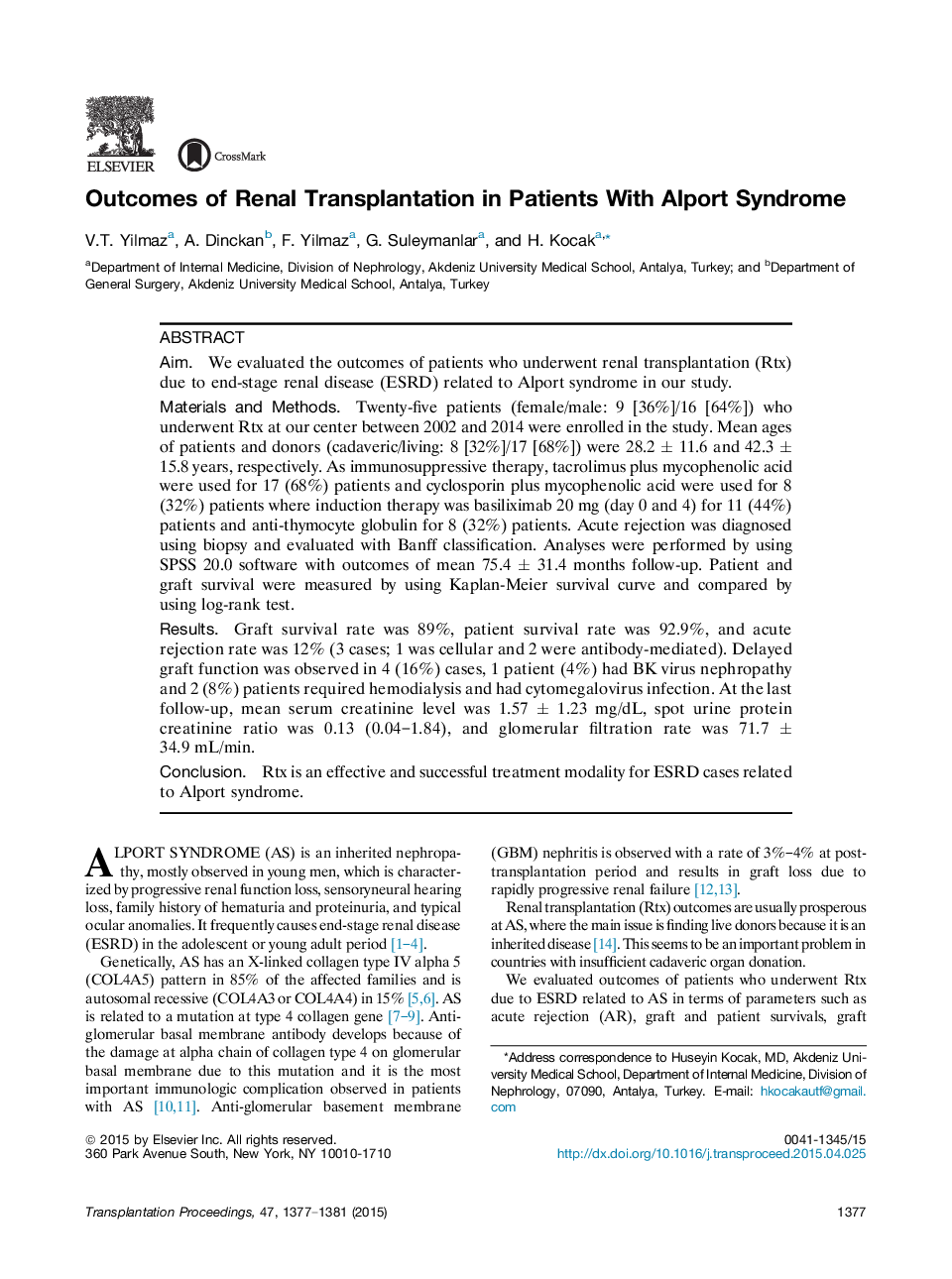| Article ID | Journal | Published Year | Pages | File Type |
|---|---|---|---|---|
| 4257384 | Transplantation Proceedings | 2015 | 5 Pages |
AimWe evaluated the outcomes of patients who underwent renal transplantation (Rtx) due to end-stage renal disease (ESRD) related to Alport syndrome in our study.Materials and MethodsTwenty-five patients (female/male: 9 [36%]/16 [64%]) who underwent Rtx at our center between 2002 and 2014 were enrolled in the study. Mean ages of patients and donors (cadaveric/living: 8 [32%]/17 [68%]) were 28.2 ± 11.6 and 42.3 ± 15.8 years, respectively. As immunosuppressive therapy, tacrolimus plus mycophenolic acid were used for 17 (68%) patients and cyclosporin plus mycophenolic acid were used for 8 (32%) patients where induction therapy was basiliximab 20 mg (day 0 and 4) for 11 (44%) patients and anti-thymocyte globulin for 8 (32%) patients. Acute rejection was diagnosed using biopsy and evaluated with Banff classification. Analyses were performed by using SPSS 20.0 software with outcomes of mean 75.4 ± 31.4 months follow-up. Patient and graft survival were measured by using Kaplan-Meier survival curve and compared by using log-rank test.ResultsGraft survival rate was 89%, patient survival rate was 92.9%, and acute rejection rate was 12% (3 cases; 1 was cellular and 2 were antibody-mediated). Delayed graft function was observed in 4 (16%) cases, 1 patient (4%) had BK virus nephropathy and 2 (8%) patients required hemodialysis and had cytomegalovirus infection. At the last follow-up, mean serum creatinine level was 1.57 ± 1.23 mg/dL, spot urine protein creatinine ratio was 0.13 (0.04–1.84), and glomerular filtration rate was 71.7 ± 34.9 mL/min.ConclusionRtx is an effective and successful treatment modality for ESRD cases related to Alport syndrome.
